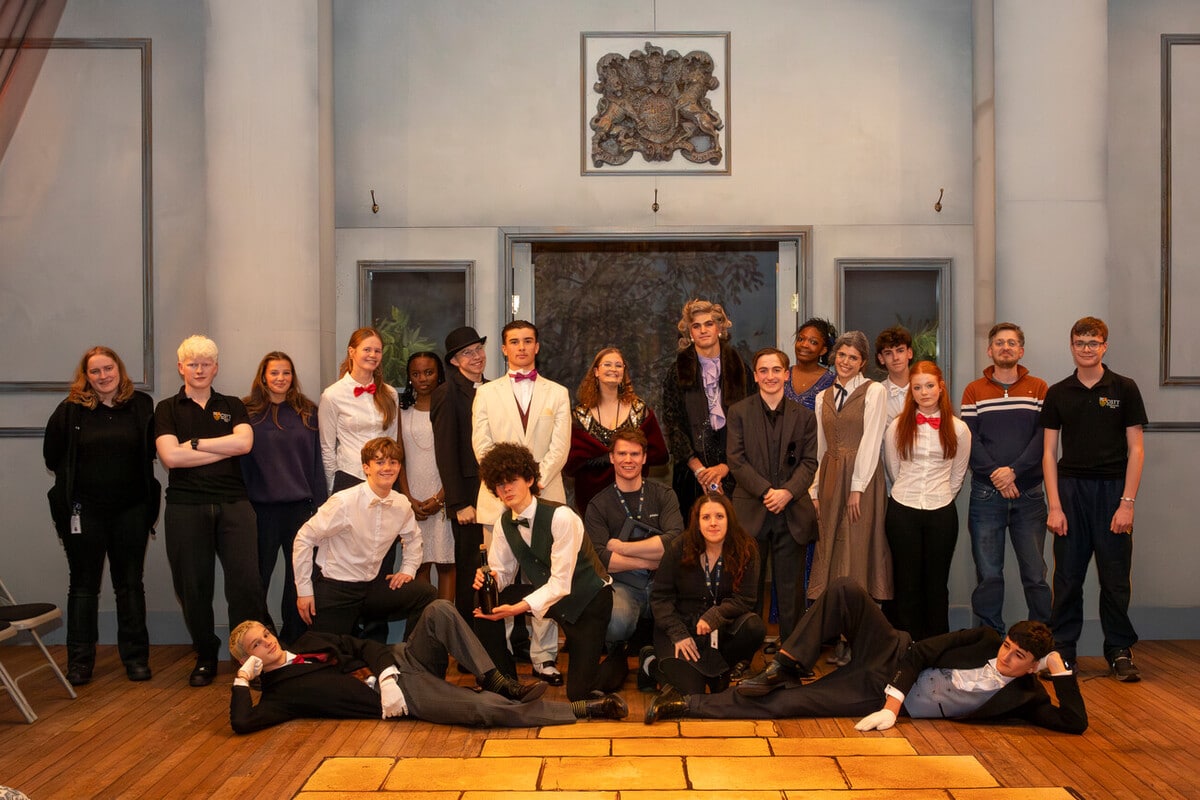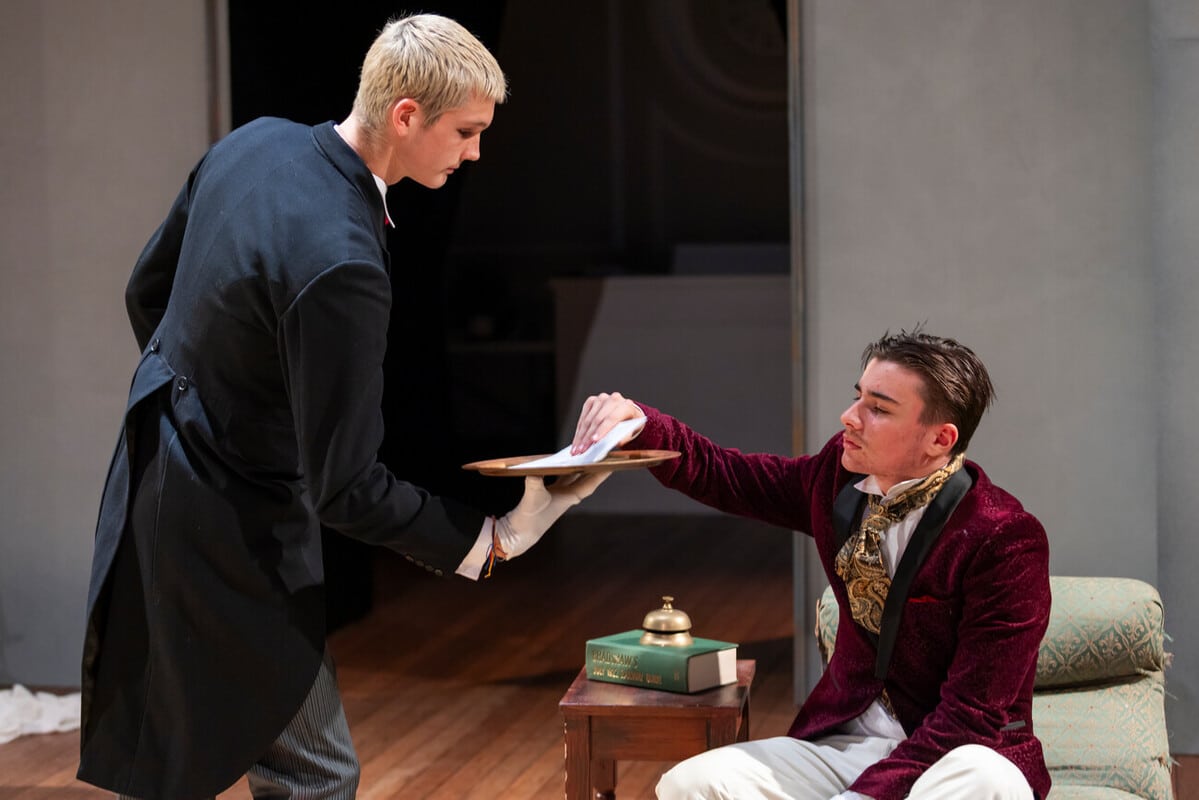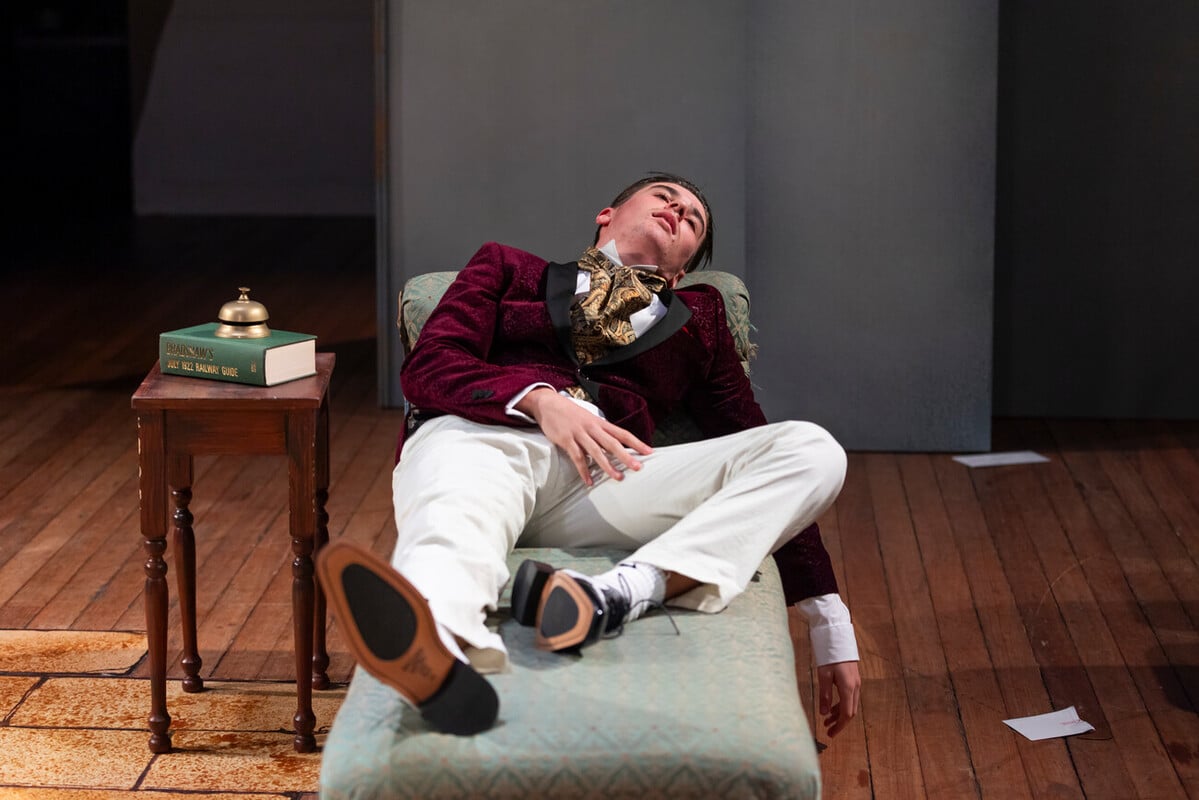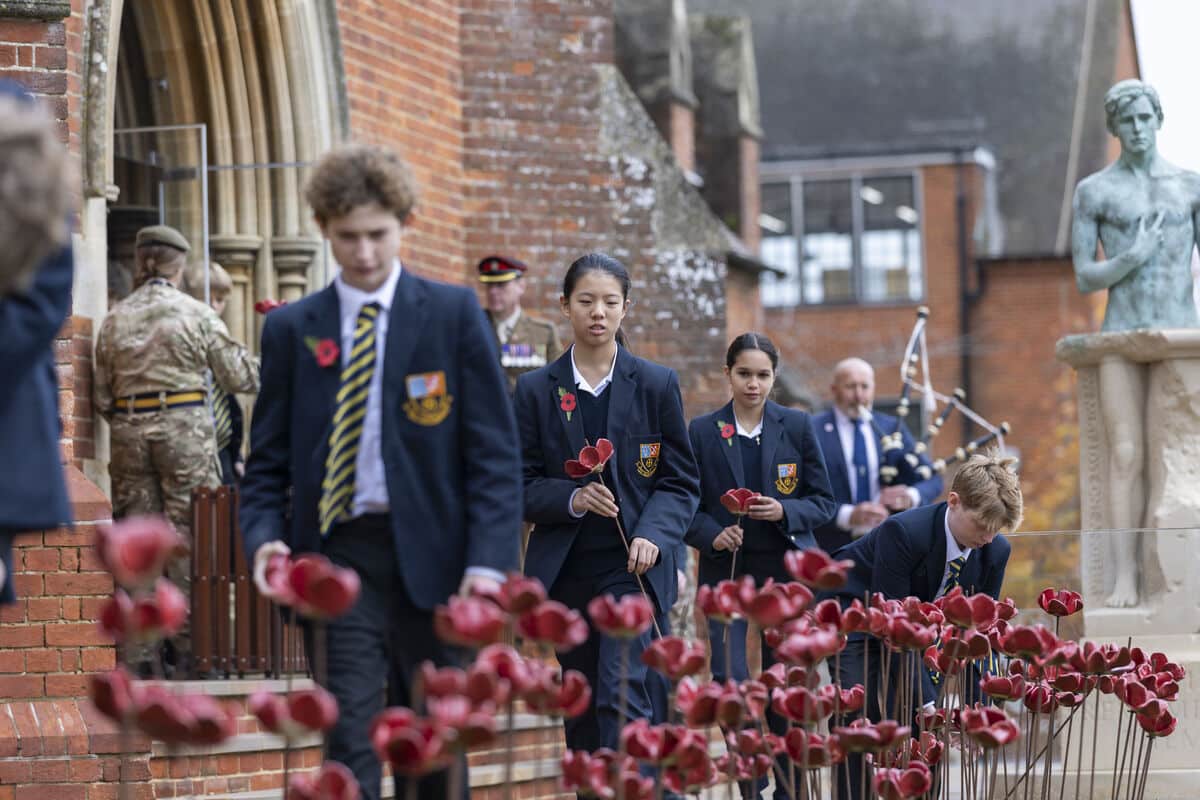First performed 1895 at London’s St James’s Theatre, ‘Earnest’ skewers the dubious morals and social pretensions of the Victorian era, especially the obsession with appearances, marriage and status. Revived countless times, the play is a staple of the English theatre scene, so it’s refreshing to see this production take a few liberties, most successfully by placing the audience either side of the set and at eye level with the actors. The unfolding farce then becomes something overseen rather than performed. The 1920s setting of this production works just as effectively, proving that there’s something timeless about using the idle rich as source of comedy.
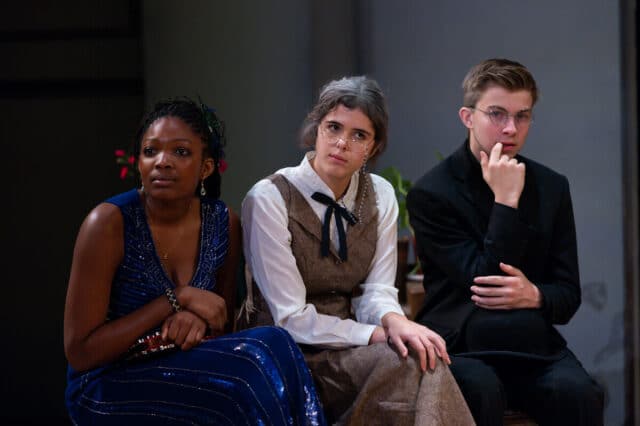
Jack Worthing, played by Max VG like a man pushed to the edge of sanity by his quest for romance, leads a double life. In the country, he is Jack, guardian to his ward Cecily; in London, he masquerades as his fictitious brother Ernest, desperate to marry Gwendolen. Max F’s infectiously self-centred Algernon Moncrieff, plays a similar trick, using the ill health of an imaginary friend Mr Bunbury as an alibi to escape the aspects of high society he finds most boring. Each spends the play trying to outdo and usurp the other.

As in the most recent West End production starring Stephen Fry, the role of Gwendolen’s mother, Lady Bracknell is played in drag, here by Cam R. Every entrance is heralded by the dread toll of a bell and a menacing change of lighting. Cam gets the immortal line about ‘a handbag’ and nails it, plonking himself in between squirming audience members as Lady Bracknell unpicks Jack’s pitch to marry Gwendolen.

The play really starts to crackle when Rewa A’s Gwendolen, all girl about own glamour, and Morife M’s Cecily, by turns fresh-faced debutante and determined temptress, find themselves face to face at afternoon tea, with cake and sugarlumps weaponised to great comic effect. Here, Gwendolen’s well known zinger “I never travel without my diary. One should always have something sensational to read on the train”, lands perfectly.
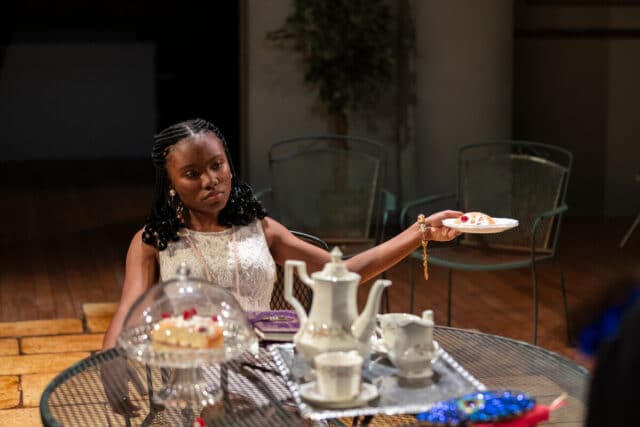
Elsewhere, Amaya A as Miss Prism and Darwin B as Rev. Canon Chasuble make their supporting roles count even with all the fireworks going on around them. Harry R is Lord Shoreman, who only gets a passing mention in the original text, but is given a bigger role here, speaking directly to the audience and acting as emcee to a gameshow and a boxing match, involving the butlers Sam W and Alfie S. The pandemonium and audience participation here are a joy.

The play is full of lovely details from director Antonia Tamblyn, who joined the school staff this year. The curtain call which features a 1920s take on ‘The Darkness’, gorgeously sung by Bella S, is a great example. Special mention must also be paid to the tech crew, led by Mr Humphreys, Mr Royall and Ms Evans for the incredibly imposing set and seamless transitions between acts. With the lighting and sound entirely operated by Teddy B and George S it was great to see students across our senior years collaborating on this production.
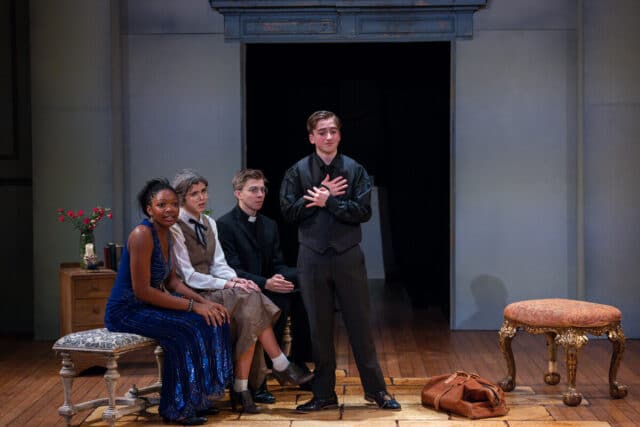
The play is remarkable for the energy and commitment of the young cast who are clearly enjoying every minute, with the confidence to improvise occasionally and the judgement to let Wilde’s wittiest wordplay do the work. “All women become like their mothers. That is their tragedy. No man does. That’s his,” says Algernon, delivering one of Wilde’s key aphorisms.

